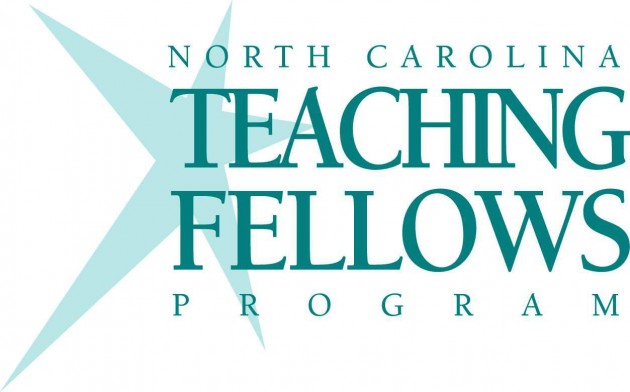
The Teaching Fellows program was placed on the chopping block and taken off the state budget by the North Carolina General Assembly in June.
Since 1986, the North Carolina Teaching Fellows Program has been an integral part of educating future teachers for North Carolina. Each year, 500 high school seniors are awarded the Teaching Fellows Scholarship that contributes $26,000 over four years to their college educations in exchange for a promise to spend at least four years as educators in North Carolina classrooms.
Not only does Teaching Fellows provide college funding for eligible students, but it also positively impacts the communities around the institutions that educate Teaching Fellows scholars, who will in turn educate more students in the future.
Along with the Teaching Fellows program, the N.C. Center for the Advancement of Teaching and the NC Governor’s School has received state funding cuts. The General Assembly was faced with a projected $2.4 billion shortfall for the 2012 fiscal year, and took drastic measures as a result.
According to Jacqueline Smith, director of the Teaching Fellows Program at WCU, cuts to the program stand to deeply impact WCU.
“The most important thing to consider…about Teaching Fellows students is that they are some of the best and brightest students that we have on this campus, and they are choosing to teach,” Smith said.
Smith said she has been affiliated with the Teaching Fellows Program at WCU since 2005, and from a cramped office on the ground floor of the McKee building, oversees the current 187 Teaching Fellows scholars at WCU. Smith handles course scheduling, advising, program planning, state requirement adherence, and many more services for all of WCU’s Teaching Fellows.
Smith spoke on the importance of the program not only to WCU, but also to the surrounding community. She said her interest in the program came after 11 years of teaching and involvement in public education administration. Through her time in public education, she worked with the N.C. Quest Grant, a state grant that helps provide resources and support to mentor beginning teachers.
Smith said she laments that the budget cuts have come at such an important time for the WCU Teaching Fellows program. She said the Teaching Fellows class who entered this fall is the largest in the history of the program at WCU and this newest class consists of 52 students from all over the state. She said that the Teaching Fellows program is more than a scholarship- it’s an engrossing experience for the students that cultivates a sense of service and community during their time as WCU students. She also adds that the WCU Teaching Fellows program has been historically very successful, with a retention rate of 93.4%. She said the Teaching Fellows class of 2007 that graduated this past spring had an average cumulative GPA of 3.64, a testament to the quality of student and future educator that the program produces.
Smith said the Teaching Fellows Program cost $13.5 million dollars each fiscal year. The figure includes the scholarship money for Teaching Fellows Scholars, the budget to run the state office in Raleigh and the funding to provide for several required state seminars. However, the financial burden for much of the program falls on the institutions that support Teaching Fellows. Universities with Teaching Fellows programs must provide the funding to run their campus offices and pay their staff. The institutions also provide money for discretionary budgets for the campus programs, as well as fund any non-state required programs, trips, or seminars.
The community around WCU will also be impacted in future years by the dissolution of the program-Smokey Mountain Elementary School will lose its tutoring partnership with WCU Teaching Fellows students, and the pen pal program that helps young children develop writing and communication at Robbinsville Elementary School will also cease. Other programs that will be impacted include Camp Friendship, Camp Free Spirit, and the North Carolina Special Olympics, all of which are programs that pull volunteers from the ranks of willing Teaching Fellows students.
The long-term cost to North Carolina for eliminating the Teaching Fellows Program goes far beyond the money saved by eliminating the item from the state budget.
Dr. Michael Dougherty, professor emeritus, and former dean of the College of Education and Allied Profession said that students in the WCU Teaching Fellows Program were “bright, ambitious, effective, leaders, student-focused and forward thinking.” He said that “sophisticated research sponsored by UNC General Administration has demonstrated that being a Teaching Fellow was on several occasions, statistically significantly related to positive student academic achievement.”
The consequences of eliminating the N.C. Teaching Fellows program will likely reverberate through the state for many years. Though N.C. lawmakers have, as of the current state budget, provided for the total elimination of the program by June 30, 2015, Smith said she remains optimistic, and hopes that the General Assembly will re-evaluate the program and its benefits to the State and consider it’s re-institution in future legislative sessions.






